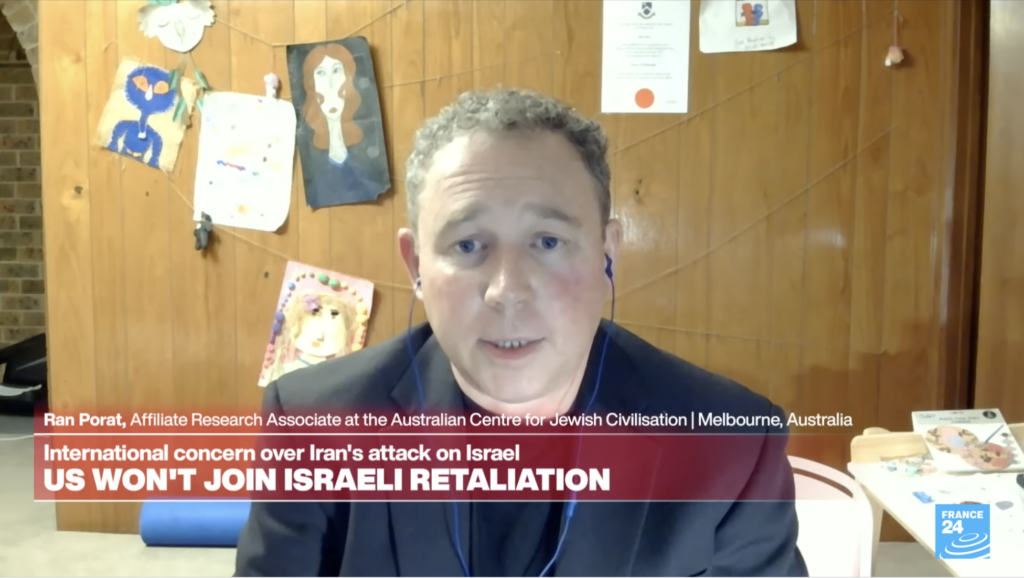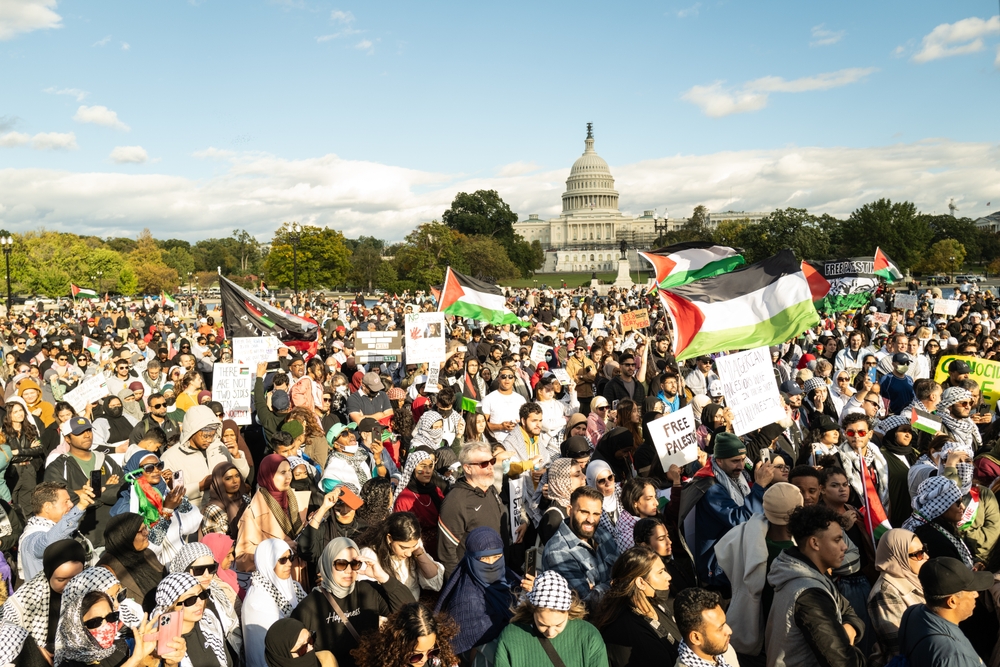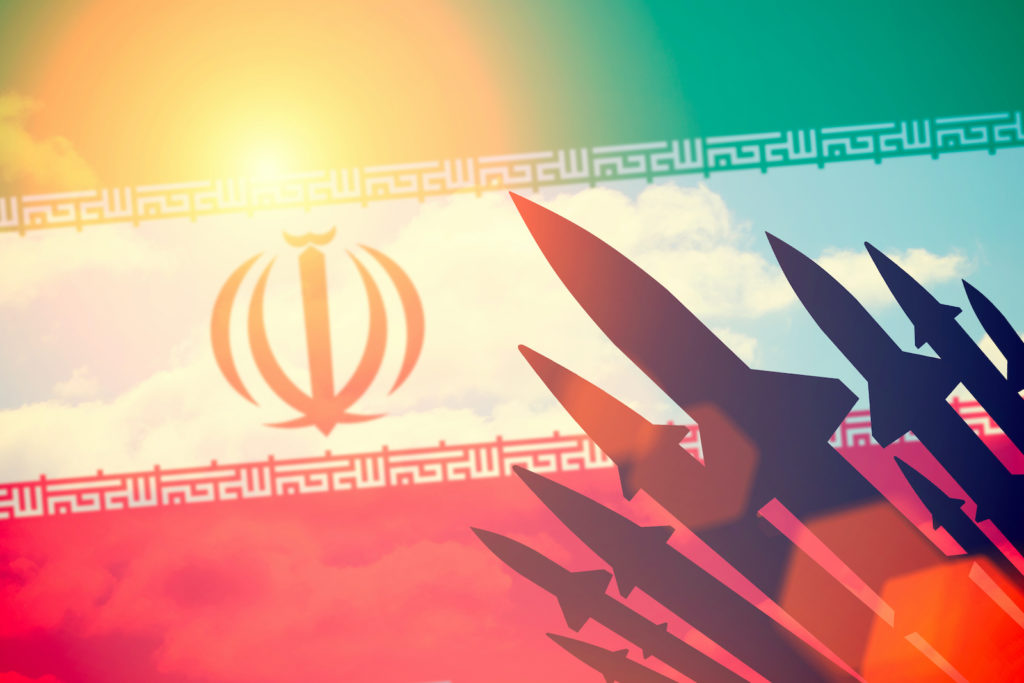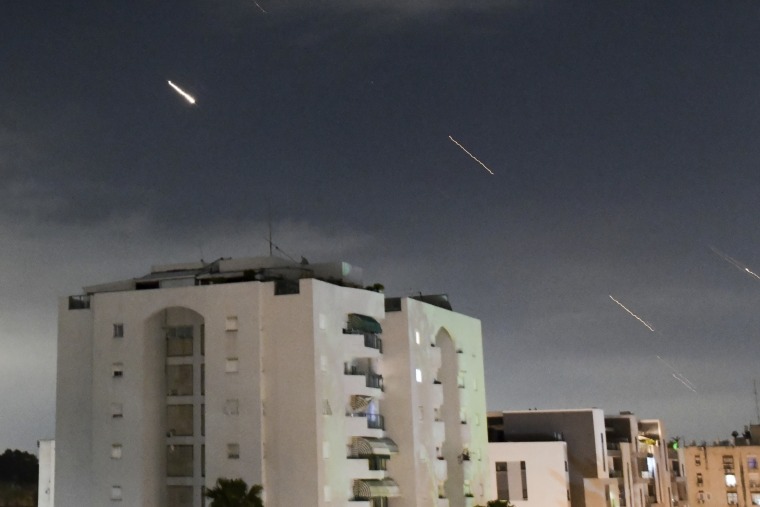UPDATES
The truth about Gaza’s “humanitarian crisis”
Jun 28, 2011 | Allon Lee
As Sharyn Mittelman noted earlier today, the evidence is overwhelming that the planned Gaza flotilla is much more about creating a political confrontation with Israel than about ameliorating the humanitarian situation in Gaza.
Now American Middle East analyst Michael Rubin, currently visiting Australia as a guest of AIJAC, has gathered hard evidence demonstrating that claims of terrible humanitarian suffering in Gaza are simply factually unsustainable.
Consulting the latest CIA World Factbook, Rubin compiles a list of statistics to show where Palestinians in Gaza rank in terms of common quality of life standards.
- The following countries and territories have a lower life expectancy than the 74 years average enjoyed by Gazans (the world average life expectancy is 67 years): Angola, Afghanistan, Niger, Mali, Somalia, Central African Republic, Guinea-Bissau, Chad, Nigeria, Burkina Faso, Malawi, Mozambique, Democratic Republic of the Congo, Sierra Leone, Equatorial Guinea, Ethiopia, Republic of the Congo, Liberia, The Gambia, Sudan, Tanzania, Zambia, Ivory Coast, Rwanda, Pakistan, Swaziland, Comoros, Uganda, Burundi, Benin, Guinea, Cameroon, Western Sahara, Mauritania, Laos, Senegal, Cambodia, Yemen, Lesotho, Djibouti, Haiti, Sao Tome and Principe, Kenya, Togo, Madagascar, Azerbaijan, Bangladesh, Gabon, Burma, Ghana, India, Vanuatu, Namibia, Nepal, Bhutan, Papua New Guinea, South Africa, Turkmenistan, Iran, Bolivia, Iraq, Eritrea, Kiribati, Tajikistan, East Timor, Mongolia, Guyana, Tuvalu, Zimbabwe, Kyrgyzstan, Indonesia, Trinidad and Tobago, Morocco, Maldives, North Korea, Cape Verde, Guatemala, Tunisia, Algeria, Egypt, Micronesia, Kazakhstan, Turkey, Marshall Islands, Paraguay, Samoa, Nicaragua, Dominican Republic, Peru, Belize, Uzbekistan, Brazil, Vietnam, Venezuela, Honduras, El Salvador, Libya, Ecuador, Philippines, Armenia, Solomon Islands, Suriname, and Mexico.
- There are 16 other nations with lower employment rates than Gaza including Bosnia, Kosovo, Kenya, or Nepal.
- Inflation in Gaza is lower than in Albania, Lebanon, Kuwait, the Philippines, Mexico, Jordan, Bulgaria, Greece, Hong Kong, Tunisia, South Africa, Indonesia, China, Hungary, Iceland, Brazil, Costa Rica, Saudi Arabia, Russia, Turkey, India, Iran, Egypt, Yemen, and Pakistan. In fact there are 120 other countries with higher inflation rates than Gaza.
- There are more mobile phones in Gaza than Lebanon, Latvia, Slovenia, Bahrain, Cyprus, Cuba, Costa Rica, and Belize. There are more internet users than in Puerto Rico, Lebanon, Bolivia, Kuwait, Ghana, Lebanon, Estonia, Panama, Cyprus, Bangladesh, Ethiopia, Armenia, Iraq, Libya, Cambodia, and Botswana.
Two luxury hotels are opening in Gaza this month. Thousands of new cars are plying the roads. A second shopping mall – with escalators imported from Israel – will open next month. Hundreds of homes and two dozen schools are about to go up. A Hamas-run farm where Jewish settlements once stood is producing enough fruit that Israeli imports are tapering off.
Bronner reports that Hamas economy minister Ala al-Rafati claims unemployment is no more than 25 percent and 1,000 factories are operating in Gaza.
It has never been among the world’s poorest places. There is near universal literacy and relatively low infant mortality, and health conditions remain better than across much of the developing world.
“We have 100 percent vaccination; no polio, measles, diphtheria or AIDS,” said Mahmoud Daher, a World Health Organization official here. “We’ve never had a cholera outbreak.”
Furthermore,
For the past year, Israel has allowed most everything into Gaza but cement, steel and other construction material – other than for internationally supervised projects – because they are worried that such supplies can be used by Hamas for bunkers and bombs. A number of international projects are proceeding, but there is an urgent need for housing, street paving, schools, factories and public works projects, all under Hamas or the private sector, and Israel’s policy bans access to the goods to move those forward.
So in recent months, tunnels under the southern border that were used to bring in consumer goods have become almost fully devoted to smuggling in building materials.
Sacks of cement and piles of gravel, Turkish in origin and bought legally in Egypt, are smuggled through the hundreds of tunnels in double shifts, day and night, totaling some 3,000 tons a day. Since the overthrow of President Hosni Mubarak, the Egyptian security authorities no longer stop the smugglers. Streets are being paved and buildings constructed.
Bronner makes no judgement himself on the ongoing blockade except to note that
Israel’s critics say the fact that the conditions in Gaza do not rival the problems in sub-Saharan Africa only makes the political and human rights crisis here all the more tragic – and solvable. Israel, they note, still controls access to sea, air and most land routes, and its security policies have consciously strangled development opportunities for an educated and potentially high-achieving population that is trapped with no horizon. Pressure needs to be maintained to end the siege entirely, they say, and talk of improvement is counterproductive.
This may explain why we hear so little of the improving economic situation in Gaza: it is politically “counterproductive” to talk about it if your goal is to blame Israel for its problems.
Further, these Israel critics never consider that the flotilla should sail to Gaza and direct its wrath towards the extremist Hamas regime that rules there, and is primarily responsible for strangling development opportunities.
Tags: Indonesia, Palestinians











